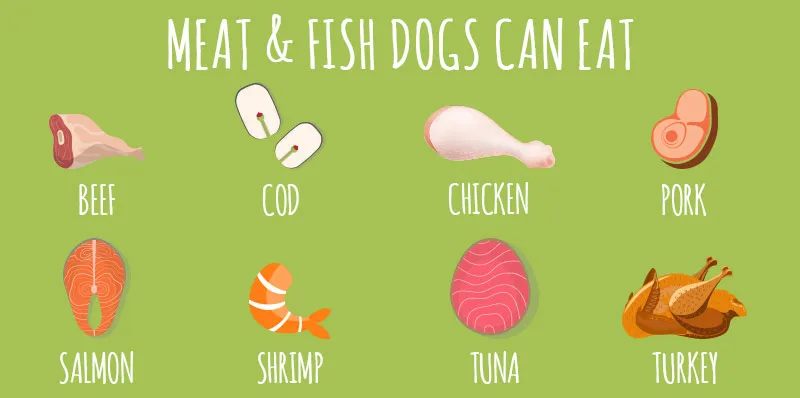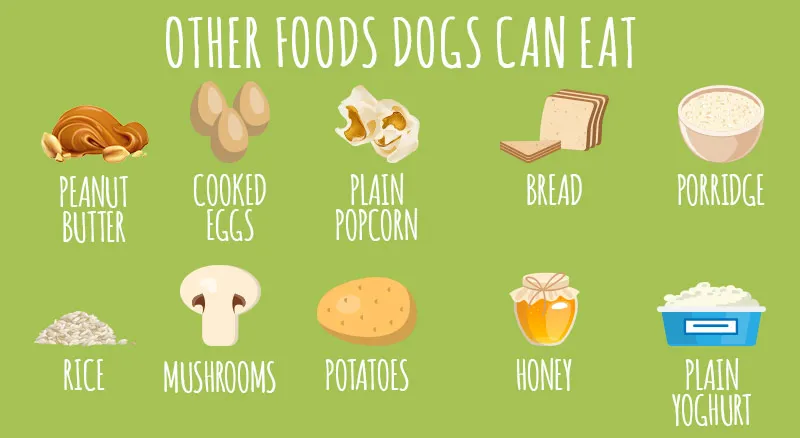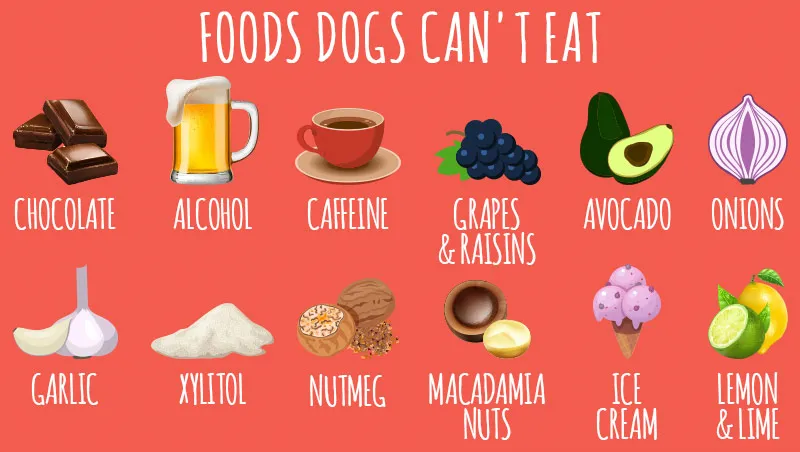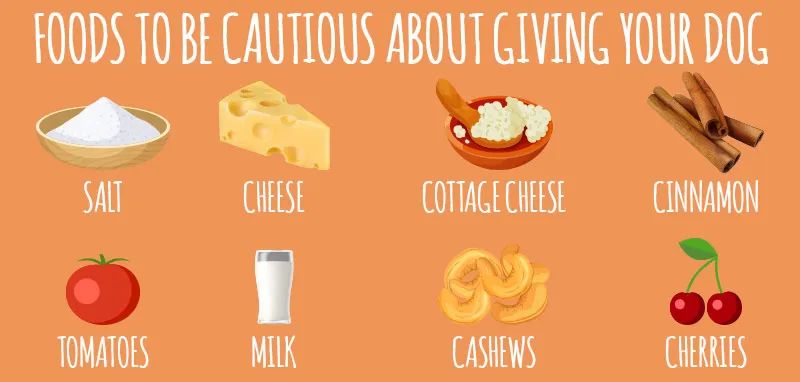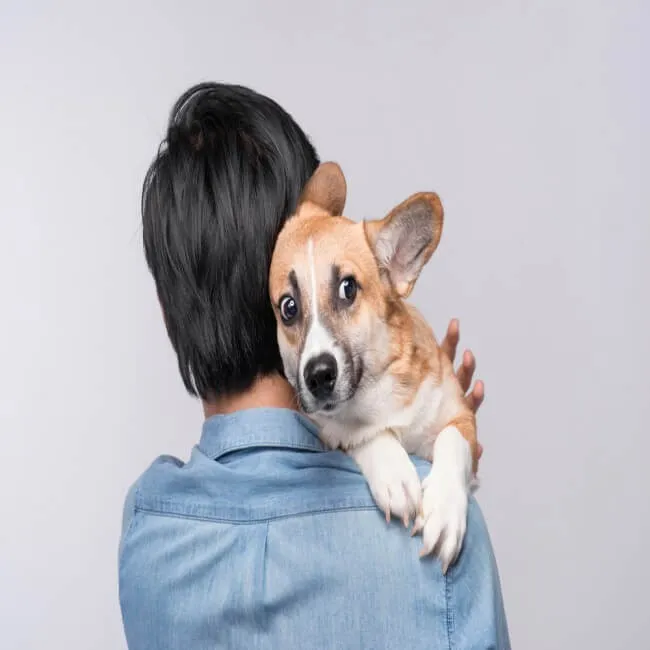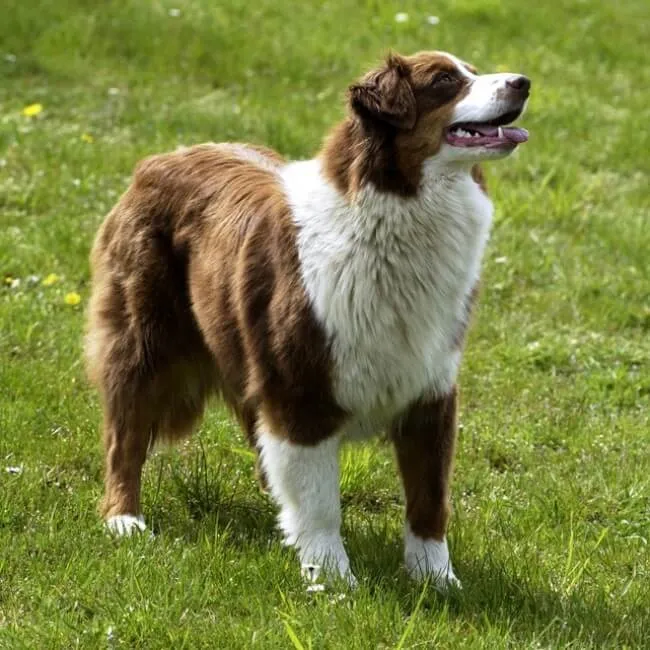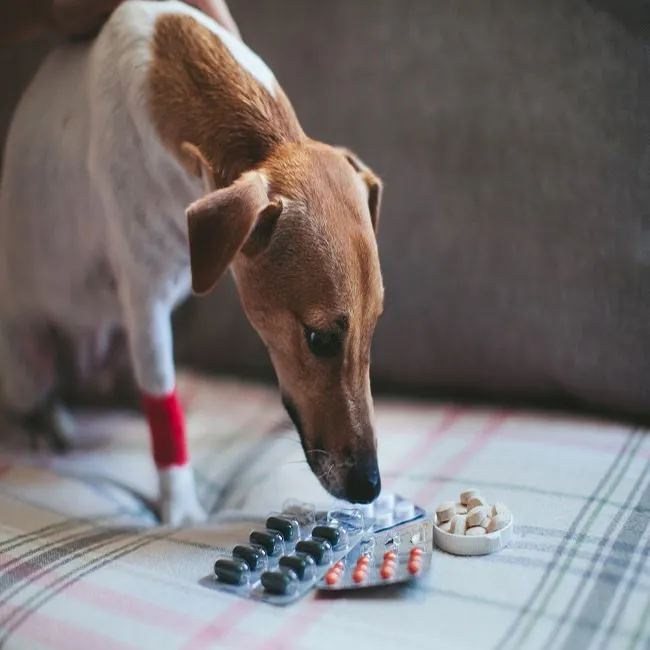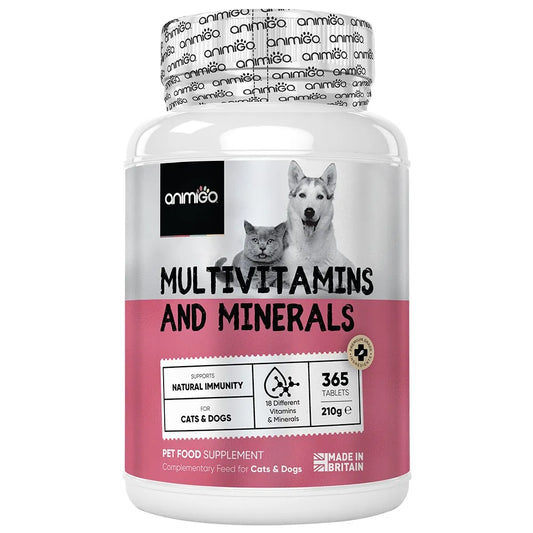What Dogs Can and Can't Eat
When it comes to eating the right foods and getting a good balance, it can be a struggle for us humans, so how are we supposed to do the same for our dogs? Whilst it can seem overwhelming thinking about what foods dogs can eat and what they can’t, it is important that you’re clued up for their health and wellbeing. Whilst you can simply stick to a specific dog food, there are plenty of other foods available that are full of nutrients and can have some great benefits for your dog. To help you understand what you can and can’t give your pooch, here is our handy list to help you out!
When it comes to eating the right foods and getting a good balance, it can be a struggle for us humans, so how are we supposed to do the same for our dogs? Whilst it can seem overwhelming thinking about what foods dogs can eat and what they can’t, it is important that you’re clued up for their health and wellbeing. Whilst you can simply stick to a specific dog food, there are plenty of other foods available that are full of nutrients and can have some great benefits for your dog. To help you understand what you can and can’t give your pooch, here is our handy list to help you out!
What can dogs eat?
People are constantly asking questions about if they should be giving specific foods to their dogs - Can dogs eat apples? Can dogs eat bananas? Can dogs eat strawberries? Can dogs eat grapes? Can dogs eat yoghurt? To make things a bit easier so you can stop questioning yourself and worrying if your dog accidentally eats some human food, here are the most popular foods that they can eat and can actually be considered healthy food for dogs and perfect to give alongside their regular dog food.
Fruit and vegetables
Just like for us, fruit and vegetables are great food for dogs and should be a staple of their diet! Not only are they full of amazing vitamins and minerals that have multiple benefits for your dog’s health and wellbeing, but they’re also a natural source of other aspects of a diet your dog needs. This includes fibre for their digestive system, protein for their muscles and good sugars for their energy. Be careful though, as not all fruit and vegetables are beneficial so here are some of the best ones that dogs can eat. Many people ask about fruit for dogs and what vegetables can dogs eat, so here are some of the best!
Meat & fish
Dogs are naturally meat-eaters, so of course, they can happily have a whole variety of meat and fish. The only limitation they may have is the quality of the meat and making sure it is cooked properly, but this principle should be applied to your own food as well so is nothing new. But what are the best meat for dogs? A good diet for dogs should be high in protein, so red meats and poultry are great for this.
Chicken is often favourable as it is high in lean protein and lower in fats compared to red meats, however, beef is also popular as it is a rich source of iron. Although fish may not be most dog's natural food source, they can still be beneficial for their health and are foods dogs can eat. In addition to meats, oily fish such as salmon, tuna and mackerel are high in essential fatty acids such as Omega 3 which are known to contain EPA and DHA which can have numerous benefits for dog’s overall health from their skin and coat to their brain and heart.
Other foods
There are plenty of other foods that dogs can eat that aren’t fruit, vegetables, meat or fish. These are often questioned a lot and are the most common foods that pet parents aren’t sure about feeding their dog. These all still have natural origins so can be considered healthy food for dogs and can have their own unique advantages. In general, they often have a lower nutritional value than fruit or vegetables that are full of vitamins and minerals, or meat and fish that are packed with protein, but they can still have their own benefits! They’re great for filling out a meal, making sure your dog doesn’t feel hungry and also a yummy treat to give them as a reward now and again!
What can dogs not eat?
Did you know humans and dogs metabolise foods differently? This is why we can eat certain foods that our furry friends can’t, and as a result, giving them these foods can be very problematic for our poor pooches. There are many human foods dogs can’t eat such as chocolate and caffeine and although to us, these foods can be things we as humans can’t live without, they each contain different compounds that are toxic to dogs and can lead to vomiting, breathing difficulties, weakness, dehydration, diarrhoea and worse. The symptoms will vary depending on the food and how they affect your dog, but if you see your pooch eat any of these, it is recommended to take them to the vets as soon as possible.
It is, therefore, probably more important that you know and understand what not to feed dogs as opposed to what you can for the sake of their health; whilst the good foods can act as a great addition to their diet and an ideal way to give them added nutrition, these bad foods can cause serious harm to your dog if they consume enough. So what foods can dogs not eat? Here are some of the most important foods to look out for and avoid at all costs.
Foods to be cautious about
These are human foods dogs can eat, but you should feed it to them with caution. These foods should be limited in your dog’s diet and should only be given in small quantities as too much could cause them issues and illness. This means that in small amounts they can be perfectly good for your dog and can offer them benefits, however, if your dog eats too much and isn’t monitored, they can end up being foods bad for dogs.
Summary
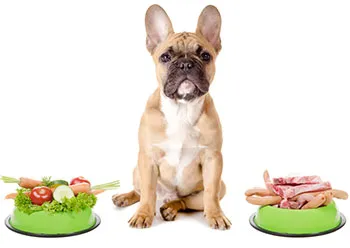
Thanks to this list, you should now know which food for dogs are good and which are bad. Whilst there are a million more foods out there, these are the most common and the most important to avoid at all costs. When it comes to your dog’s diet though, the key is to know what is good and bad for them and to achieve the right balance. Many people simply choose to give their furry friends a pre-made dog food for the convenience that the food is already prepared and measured. Whilst this isn’t necessarily a problem, it is all about choosing the best dog food for your pooch. Many dog foods claim to include everything they need, but do they really?
The best way to provide your dog with a complete and balanced diet is to give them a range of other foods. These are generally called ‘human’ foods, but fruit, vegetables, meat and fish are all natural and perfectly okay for your dog. In fact, in the wild, that is what they would be eating anyway! As long as you know the dog foods to avoid, your pooch can benefit from the nutrients found in a range of food groups. You can also try adding natural supplements to their diet that helps give their nutrition a boost, such as a multivitamin supplement for dogs. So, now you know what your dog can and can’t eat, try changing up their diet so they can reap the benefits of a wealth of foods, just make sure to avoid the ones their body can’t deal with!

